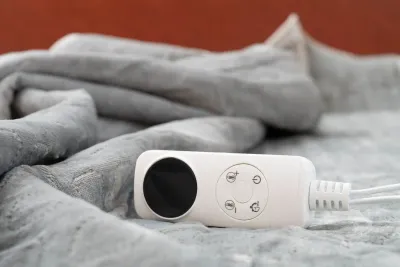
Key Takeaways
CBD and CBN are often discussed in sleep conversations for their calming and sedating properties, but results depend on the person and overall sleep habits.
- CBD (cannabidiol) is commonly used for relaxation and anxiety reduction, which may make it easier to unwind before bed.
- CBN (cannabinol) is often referred to as the “sleepy cannabinoid” and is associated with more sedating effects.
- Research on CBD and CBN for sleep is still developing, with early findings promising but not yet conclusive.
- Many people pair cannabinoids with strong sleep hygiene—such as consistent schedules and temperature control—for better results.
If you’re someone who spends nights tossing and turning trying to get to sleep, you’ve probably tried your fair share of sleep concoctions. From chamomile tea to lavender essential oil, there are so many natural products that claim to be miracle-workers for sleep. But what about CBD and CBN?
As the two cannabinoids’ popularity grows, so do their uses. CBD and CBN have been used to treat issues like anxiety, pain, inflammation, digestion, and poor sleep. But how effective are these cannabis products for sleep and should you consider incorporating either one of them into your sleep regimen?
CBD and CBN: What’s the Difference?
CBD and CBN are both cannabinoids. [1] This means that they are active chemicals found in the cannabis plant. Both CBD and CBN interact with your endocannabinoid system, a system made up of receptors and molecules. When either CBD or CBN interact with your body’s endocannabinoid system, it triggers a response from your nervous system, thus creating an effect on your body.
Though they’re both active chemicals derived from the same plant, CBD and CBN can have very different effects on the body. So, what’s the difference between the two?
CBD and Sleep
CBD is a psychoactive substance, like THC, another chemical found in the cannabis plant. [2] Unlike THC, CBD does not impair the body or mind. Rather it has a calming effect on the body. CBD can be found in a high concentration in the cannabis plant, therefore making it more affordable and accessible than CBN.
CBD is an extensively studied cannabinoid. Most of the research done on the chemical supports its effectiveness in treating anxiety and pain relief. It’s also known to be an anti-inflammatory.
CBN and Sleep
CNB is found in lower concentrations in the plant and has not been researched as extensively as CBD has. Like CBD, CBN does not impair the body or mind. CBN has been used as an anti-inflammatory, pain reliever, appetite stimulator, and for sleep help [1].
What Does the Research Say About CBD or CBN For Sleep?
Both CBD and CBN have known benefits, but which cannabinoid would be better if you struggle with poor sleep? Let’s see what the research says.
One study done on the effects of CBD and sleep found that sleep scores improved for 66.7% of patients who used CBD for sleep, but that number fluctuated as time went on. The same study found that CBD decreased anxiety in 79.2% of patients and that number stayed consistent over time. [3]
Looking at these results, we could conclude that CBD is more effective in treating anxiety than it is for helping with sleep. With this being said, if your sleep issues are anxiety-related, CBD could be a good option. By reducing your anxiety, you may have an easier time getting a restful night’s sleep.
What if you need sleep help that is anxiety-related? Could CBN be the answer? The truth is, there just isn’t enough research out there to confidently conclude that CBN is a miracle sleep aid. There was a 1975 study done that found CBN had sedating effects, but the CBN was combined with THC in this study. [4] Because of the lack of research, we can’t conclusively say one way or another that CBN is the answer to poor sleep.
Should You Try CBD or CBN For Sleep?
CBN is believed to have sleep-inducing effects, but because of the lack of current research, we can’t say for certain that CBN is a reliable sleep aid.
Between the two, there is definitely more research available on the effects of CBD. Because it is more accessible, affordable, and researched (although we still need more!), CBD might be a good place to start if you want to try adding a cannabinoid into your sleep routine. Particularly if your sleep struggles are anxiety-related, CBD could potentially be very helpful.
Keep in mind that everyone’s body reacts differently to cannabinoids. If you do choose to introduce either CBD or CBN into your routine, start with a low dosage and speak to a healthcare professional who is familiar with the effects of cannabis products.
Peer-Reviewed Research References
-
Okamoto-Mizuno, K., & Mizuno, K.
Effects of Thermal Environment on Sleep and Circadian Rhythm.
Journal of Physiological Anthropology, 31(1), 14, 2012.
Source Type: Peer-Reviewed Sleep Physiology Study
Key Insight: Demonstrates that ambient temperature significantly influences sleep architecture and circadian rhythm regulation, with both excessively warm and cool environments impairing sleep quality and thermoregulation during sleep.
View Study
-
Caporuscio, J.
What to Know About CBD and Sleep.
Medical News Today, June 3, 2020.
Source Type: Medical Health Journalism
Key Insight: Reviews current evidence on cannabidiol (CBD) and sleep, noting potential benefits for anxiety-related sleep disturbances while emphasizing the need for more large-scale, controlled clinical trials.
View Resource
-
Shannon, S., Lewis, N., Lee, H., & Hughes, S.
Cannabidiol in Anxiety and Sleep: A Large Case Series.
The Permanente Journal, 23, 18–041, 2019.
Source Type: Clinical Case Series
Key Insight: Reports that cannabidiol use was associated with reduced anxiety and improved sleep scores in a majority of patients, suggesting CBD may support sleep indirectly by alleviating anxiety symptoms.
View Study
-
Karniol, I. G., Shirakawa, I., Takahashi, R. N., Knobel, E., & Musty, R. E.
Effects of Delta-9-Tetrahydrocannabinol and Cannabinol in Man.
Pharmacology, 13(6), 502–512, 1975.
Source Type: Human Pharmacology Study
Key Insight: Early human research showing that THC and related cannabinoids affect sleep, perception, and central nervous system function, laying foundational evidence for later research on cannabinoids and sleep regulation.
View Study









